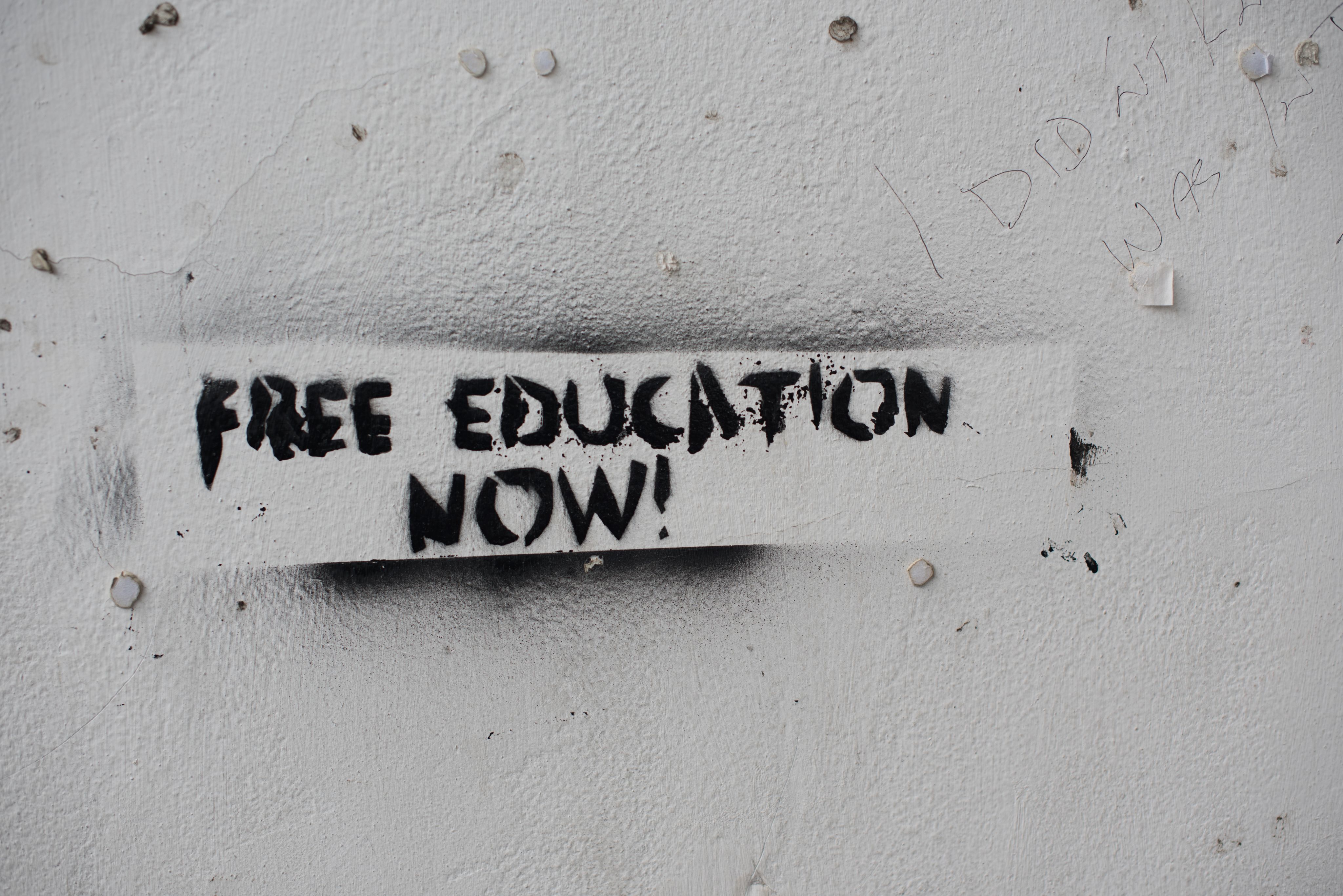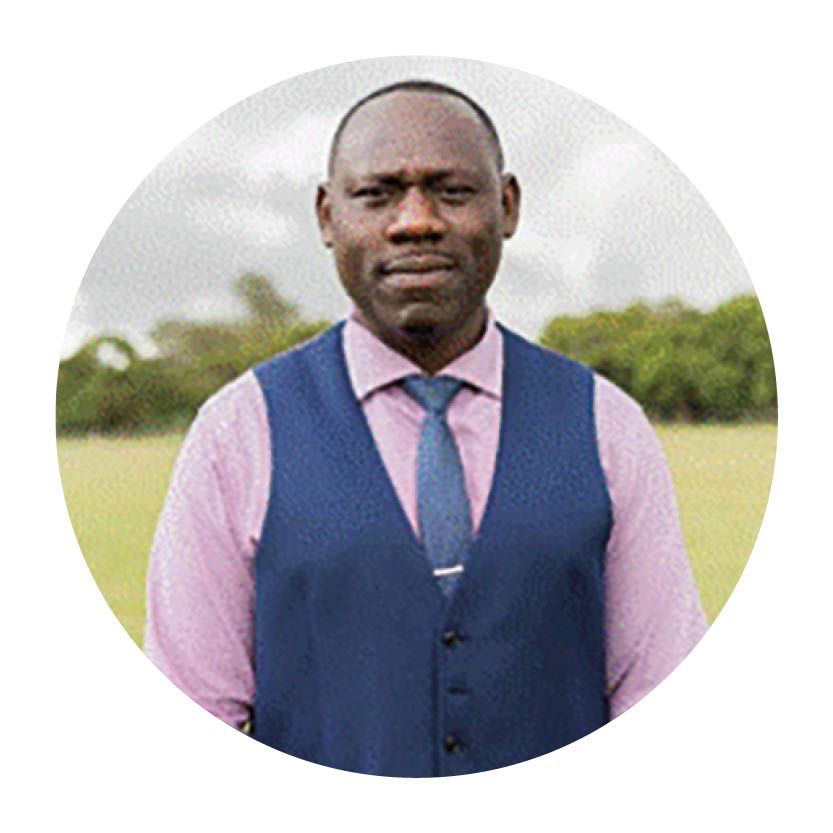Decolonising an
International Curriculum

The University of London is on the cusp of a change. We have made a commitment to decolonise our distance learning curriculum and are working with our global student population to help us reshape our content, design, pedagogy and delivery with a truly international lens.

This project is being led by Dr Oscar Mwaanga, Programme Director of Postgraduate Certificate (PG Cert) International Sports Management. In 2019, Dr Mwaanga was awarded the Centre for Distance Education’s Teaching and Research Award for ‘creating recommendations that empower staff to design and deliver academic programmes that foster decolonisation’. This research project has provided the drive and framework for wider decolonisation work across the University’s distance learning programmes.
I asked Dr Mwaanga to tell us about the changes underway at the University, and why this is such a critical moment in our history.
How did this journey start?
“Alongside a number of esteemed colleagues, I am humbled to have the honour to champion this movement. Since early 2019, I have consulted with various stakeholders, including the University of London Race and Equality Group, to fully understand the need for, and commitment to, decolonisation.
One significant outcome was the formation of a Decolonisation Working Group, which aims to inspire, lead and support collective work. Before we begin decolonisation work in a more practical sense, it is important to understand the wider context behind the proposed changes.
The current global ‘decolonising the curriculum’ agenda was reignited in South Africa in 2015 by the ‘Rhodes Must Fall’ movement. Students demanded the decentralisation of global north and Eurocentric knowledge and not just the inclusion, but equal footing, for indigenous knowledge in the curriculum.
The Black Lives Matter movement, following the brutal murder of George Floyd in May 2020 by police in the US, as well as women’s protests across the world, have given the 500-year-old decolonisation movement new impetus.
The movement gained global momentum with protests on university campuses across the world. In the UK, this was led by the National Union of Students’ ‘Why is my curriculum white?’ campaign, which maintained that higher education, including teaching, research and governance, must start to decolonise. But many were unclear what it exactly meant to decolonise.”
What does it mean to decolonise the curriculum?
“The term ‘decolonising the curriculum’ divides people in very strong ways. One way to progress our understanding is to clarify what a colonial curriculum is. It is, fundamentally, an inaccurate and exclusionary curriculum that provides untruthful and/or partial knowledge.
It sustains privilege for those who belong to a historically favoured demographic (i.e. straight, white, heterosexual, middle and upper class men) in both an academic and a wider societal context. This leads to a wide range of detrimental consequences, including sustained disempowerment, structural inequities, marginalisation and dehumanisation of historically colonised demographics. When we consider these biases, it is clear that a colonised curriculum is not in keeping with the University’s educational ambitions, and historical values and beliefs.
The University of London’s commitment to equality and inclusion remains a key institutional value, enshrined in both our Statutes and our current Strategy. We are committed to evolving and growing in ways which reflect our diverse, international student body and actively learning from our progressive past.
Professor Mary Stiasny OBE,
Pro Vice-Chancellor (International, Learning and Teaching)
What will this look like in practice at the
University of London?
“An honest point of departure for a programme or course team is the acknowledgement that our curriculum and pedagogy still reflect a colonial legacy that centres on global north intellectual traditions while marginalising others.
Although work to decolonise our distance learning programmes is still in its infancy, work being done in the Postgraduate Certificate in International Sports Management (PGCert ISM) programme paints a picture of what the journey ahead will look like.
A curriculum not decolonising can have serious psychological, educational and societal ramifications, which can work against the building of a sustainable and thriving sports industry and global community. In trying to decolonise PGCert ISM, we have evoked a multilevel intervention, which asks the important ‘who?’, ‘what?’, ‘how?’ and ‘why?’ questions. Who is teaching and designing academic curriculums? What is being taught? How is it being taught? Why is it being taught? In addition, and very importantly, how are we going to change this canon of knowledge? When we ask and answer these questions, a picture of society starts to unfold at the doorsteps of the University.

Our 50,000 plus distance learning students across the University, in our physical and virtual classrooms, represent a rich diversity in terms of culture, social class, race, gender and sexuality. This sets the stage for questioning whether our educational offer meets the needs and the diversity of this student body.

To this end, in the PGCert ISM programme, we have started to recruit a team of tutors who are representative of the diversity of our student body in terms of gender and ethnicity. In addition, decolonisation has been included as an integral part of the 2021 annual review of our students’ learning experiences on the International Sport Development module of the PGCert ISM.
This exercise, guided by Professor Diana Laurillard’s Conversational Framework, focuses on the learner and the learning experience. It involves systematic and collaborative evaluative conversations between tutors, learning technologists and students about the annual performance of the curriculum and pedagogy in terms of learning and decolonisation.
The review involves questioning the colonising practices embedded in the six identifiable learning activities of the Conversational Framework: acquisition, investigation, collaboration, discussion, practice and production. For example, under the acquisition learning activity, we work with students to ensure our reading lists are inclusive; and for the production learning activity, we encourage students to explore culturally diverse ways to report, for example, reporting through storytelling.
As a programme, we want a genuinely inclusive postgraduate sports education that allows all of our students to see themselves and their cultural backgrounds reflected in every component of the curriculum.”
What are the future ambitions for this work?
“We have only just begun this journey, but we know that it is going to be a long and sometimes bumpy road due to the complexity and the sensitivities it evokes. The Teaching and Research project findings will suggest further priorities for decolonising work at the University, and the Decolonisation Working Group will inspire, lead and support collective work on the identified priorities.
To truly decolonise the curriculum requires transformation, not just assimilation, of new material into the curriculum. This requires changes that are far more radical and will particularly require the University to face up to and confront the discomfort that comes with a transformative decolonisation agenda. We also need to be prepared to radically rethink what constitutes ‘knowledge’ and to include decolonisation in our polices and strategies.”
Further work to decolonise the curriculum at the University
As part of the School of Advanced Study’s ongoing commitment to championing diversity and inclusion, the Institute of English Studies (IES) appointed Dr Sarah Pyke as a Post-Doctoral Research Fellow to develop a Toolkit for Inclusion and Diversity in English Studies (TIDE).
Dr Pyke’s research addresses overlooked histories of Black, Asian and Minority Ethnic researchers in English, and participates in decolonising initiatives within the Institute and the wider School. The research is funded in part by the University of London Convocation Trust and a legacy gift bequeathed by alumnus John Lucas.
The Institute has partnered with the English Association, the Postcolonial Studies Association, the University of East Anglia and University English on a collaborative initiative titled ‘Decolonising the Discipline’. This working group is developing platforms for discipline-wide conversations that can foster and support collaborative action across English literature, language and creative writing. Learn more at: ies.sas.ac.uk/decolonising-discipline
The University of London Institute in Paris (ULIP) is also undertaking initiatives to decolonise the curriculum. In February 2021, ULIP co-hosted an outreach event promoting the study of modern languages. The programme aimed to show how foreign language learning can help decolonise the languages curriculum at university, in addition to how culture plays a key role in widening participation. For more information, visit: bit.ly/ulip-news


Dr Oscar Mwaanga is Programme Director of PGCert International Sports Management.

Lucy Jordan is the former Senior Content Officer at the University of London.

